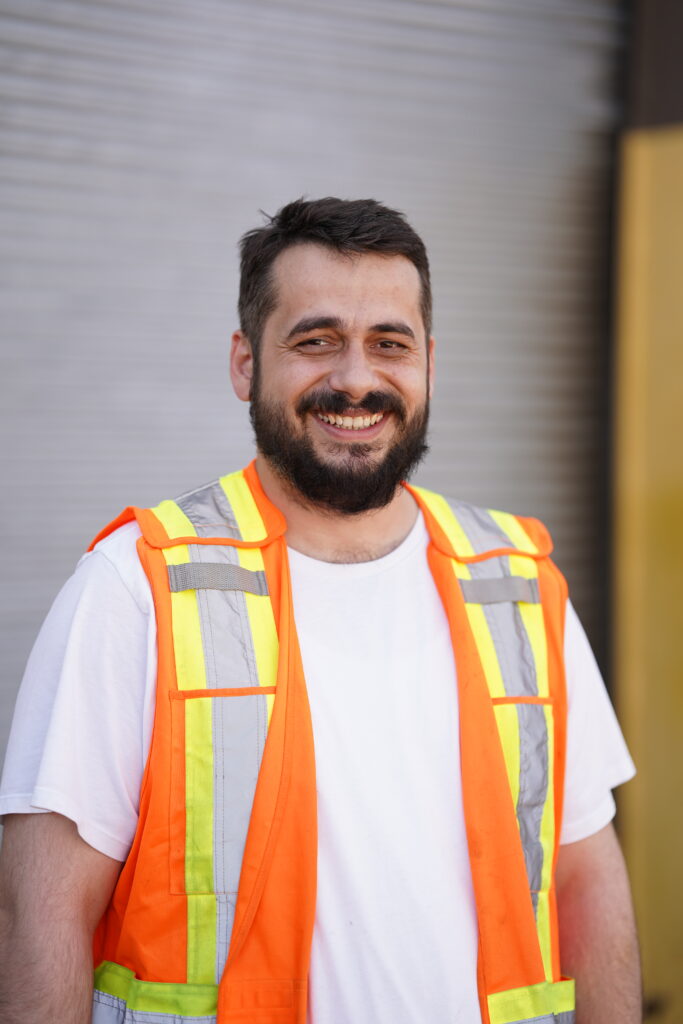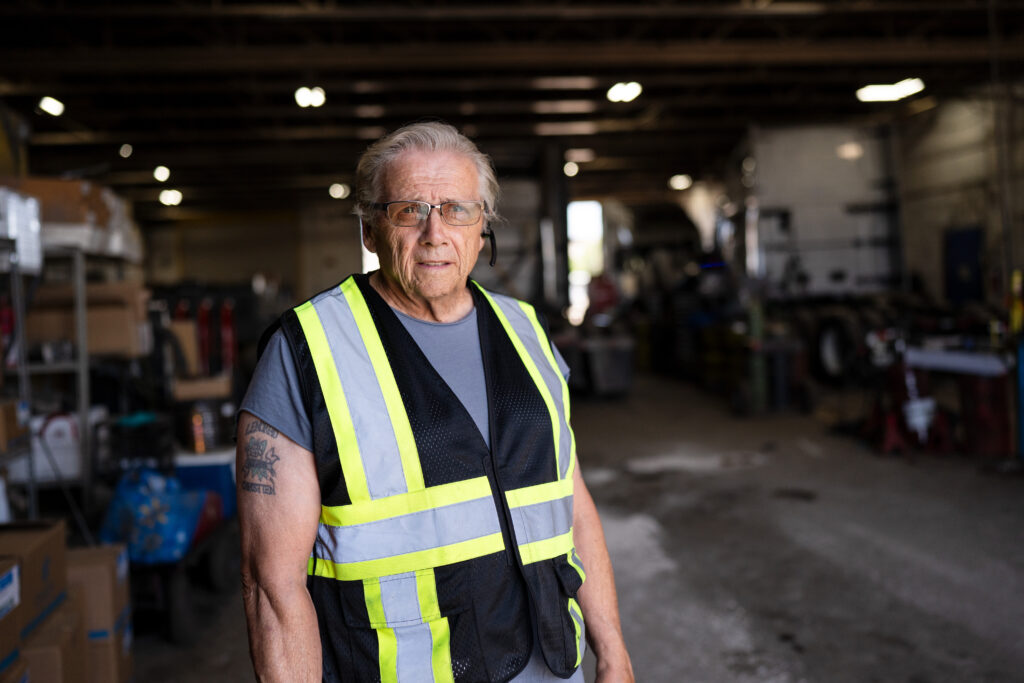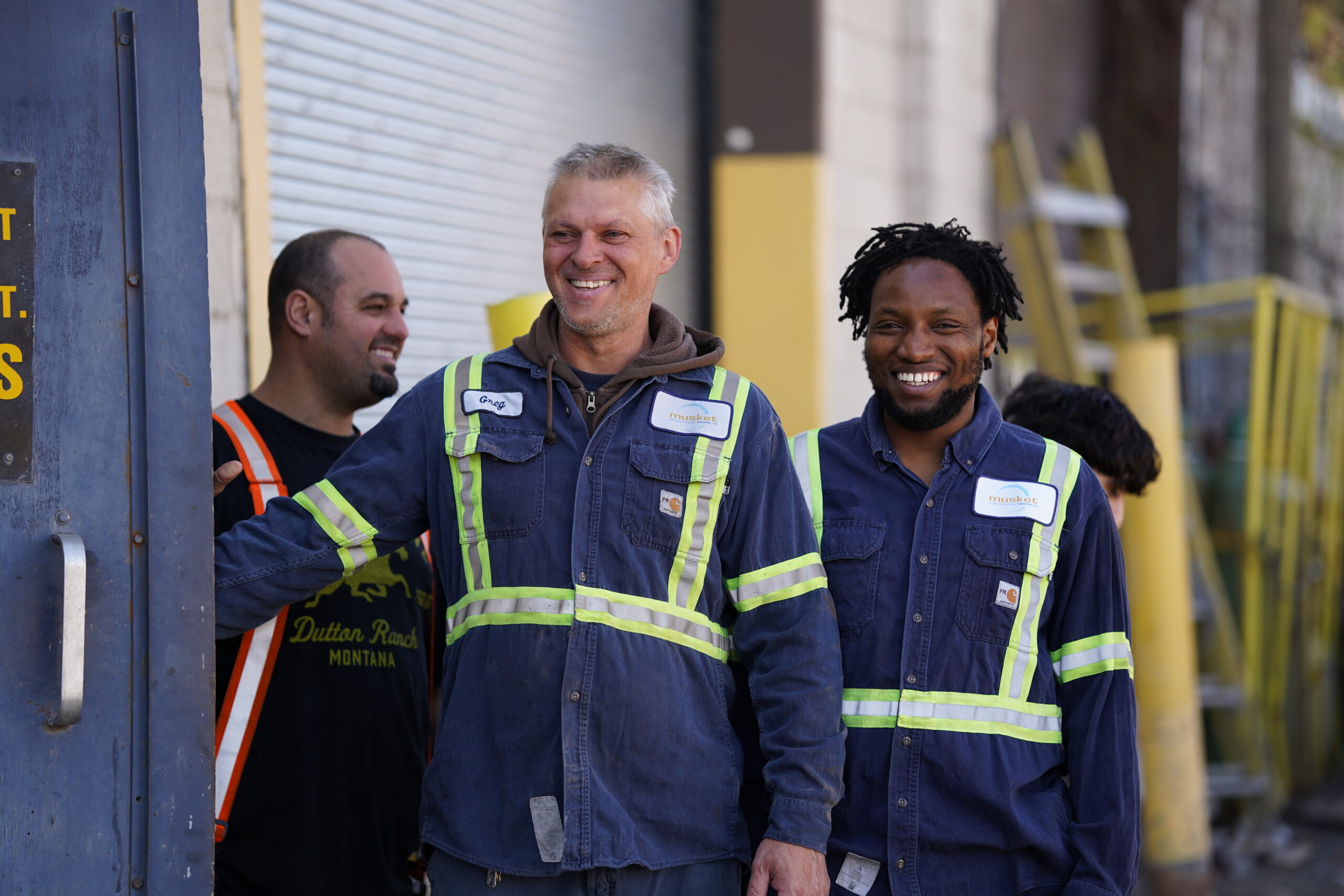Musket mechanics are proving that AZ/DZ licenses aren’t just for drivers—they’re career-changing tools for technicians too. With CHET training and dual qualifications, they’re streamlining operations,
boosting mobility, and reshaping what it means to work in transport.

At Musket, our mechanics do more than turn wrenches—they move wheels, literally. Increasingly, we’re seeing firsthand how valuable it is to have mechanics with AZ/DZ licenses. Trained through CHET, several of our team members have stepped beyond traditional garage roles to become mobile
assets, enhancing our ability to respond, relocate, and repair with greater agility.
Driving Dual Value

Our mechanics aren’t just fixing trucks—they’re driving them. That kind of versatility pays off. As Fitim shared, “If you’re a customer and something small in your truck breaks, you can fix it yourself instead of hiring someone. It saves time and money.”
Holding both mechanical and AZ/DZ licenses opens doors to career growth as well. When asked what opportunities opened up after licensing, Fitim said simply, “Becoming a maintenance coordinator.” John echoed the broader impact of dual qualifications: “If you are hired for one job, you can be more of an asset for the company.”
The benefits extend to daily operations too. Fitim noted, “Moving trucks around, no license needed in the yard.” That kind of autonomy streamlines workflows and keeps things moving, even when drivers are scarce. As John pointed out, “What if you’re short of drivers? If mechanics don’t have much work, put them on the road.”
From Classroom to Roadway

Training at CHET helped many of our team members get road-ready. “It was a good experience, I was taught most of the stuff that is needed for the road,” Fitim explained. John appreciated the guidance through the process: “The program guided me step-by-step through the system with multiple instructors during the training.”
And while classroom learning played an important role, the hands-on application is where the dual qualification shines. John explained, “Take the truck for a test. If the truck whistles, you need to listen carefully. Some things you can only assess when the truck is being driven.”
Advice from the Road

The path to licensing isn’t always smooth. Tayeb shared that it was a “Big change from previous jobs (retail) and was hard to get used to it.” John acknowledged the academic demands, “Lots of information… do it every 5 years, 20 questions each for 3 tests.”
Still, the consensus is clear: it’s worth it for mechanics to have their AZ/DZ License. Fitim advised, “Take it slow at first. Once you’re comfortable, do your stuff a little quicker. Build up to it.” Tayeb echoed that encouragement: “People who are interested in this career should definitely go ahead and do it because it’ll give them more opportunities to grow.”
The long-term value of licensing is also clear. John explained: “If you have your license . . . you are qualified to certify annual inspections, and also you’re allowed to take on apprentices, up to 3 apprentices for one licensed mechanic. That makes it a very valuable asset.”
The Musket Edge

At Musket, we value adaptability and skill, and having mechanics who can move equipment themselves means fewer delays, more flexibility, and stronger coordination between the garage and the road.
Tayeb summed up the dual-role perspective best: “It’s good for mechanics to have their truck license so that they’re able to drive the vehicle on the road and they can test it better. They also get a feel of the other side of the business—what it’s like to be a driver, and see things from their perspective.”
That insight—the bridge between repairing and driving—is exactly the kind of integrated expertise we strive for.
So, here’s to the Musket mechanics—on the road, in the shop, and always moving forward.

